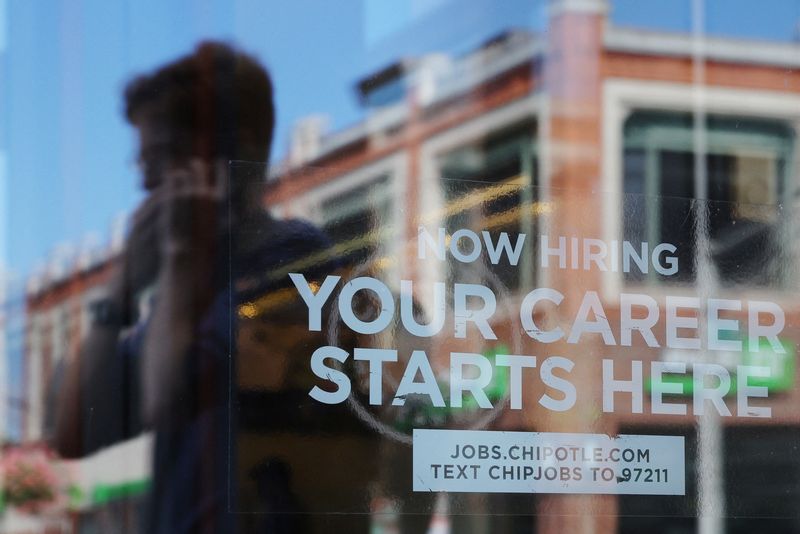
“Strong September job gains and upward revisions have for now calmed fears that labor demand might be too weak to prevent the unemployment rate from continuing to trend higher,” the strategists said in a note.
Goldman’s recession probability had stood at 15% before the unemployment rate increased from 4.054% in June to 4.253% in July. The key factor behind the revision is the drop in the unemployment rate to 4.051% in September, which is slightly below the June level and under the threshold that triggers the “Sahm rule.”
Akin to many investors, Goldman said it has closely monitored the balance between job growth and labor supply growth. While labor supply growth is expected to slow, it will remain elevated enough that 150,000 to 180,000 jobs per month will be necessary to stabilize the unemployment rate.
Although trend job growth dipped below this range in August, it bounced back to 196,000 in September. Their job growth tracker, which incorporates both survey and hard data, is only slightly below that figure.
“While the jobs numbers have been volatile, we think they can probably be taken at face value because we see no clear basis for further persistent negative revisions and the birth-death adjustment now looks reasonable,” the strategists said.
“More broadly, we see no obvious reason for job growth to be mediocre at a time when job openings are high and GDP is growing strongly.”
Goldman acknowledges that the labor market is still softer than it was before the pandemic. Measures of labor market tightness suggest the risks to the unemployment rate remain two-sided.
However, the September decline in unemployment provides early evidence that the previous increase was likely driven by the temporary challenge of absorbing a surge in immigrant labor supply, which is now easing.
According to Goldman’s team, the recovery in job growth supports the view that the Federal Open Market Committee (FOMC) is on a path toward 25-basis-point rate cuts. Strategists continue to project consecutive 25bp cuts, with a terminal rate of 3.25% to 3.5% by June 2025.
“If job growth remains solid and the unemployment rate does not rise further, then where to stop and how quickly to get there will likely come up for the debate next year in the Fed’s framework review,” they added.
They believe that a pause in the rate-cutting cycle is unlikely in the near future, as the federal funds rate remains elevated. Still, strategists note the possibility that the FOMC might proceed more cautiously as it approaches the appropriate terminal rate, adjusting the pace of cuts as necessary.
To read the full article, Click Here
